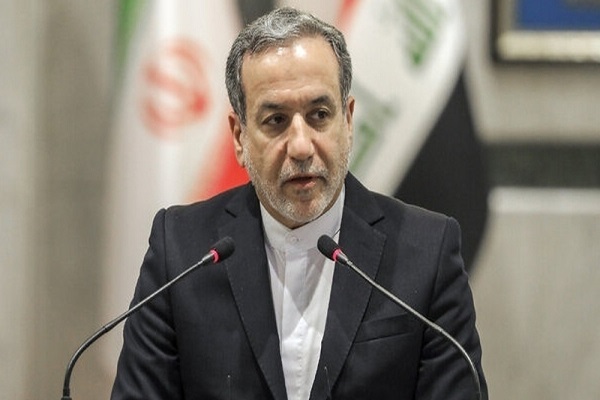
TABNAK, Dec 21: The top diplomat made the remarks on Friday during an interview with the al-Ghad network in the Egyptian capital Cairo, where he earlier attended the 21st Session of the Council of Ministers of D-8 (Developing-8) Organization for Economic Cooperation.
He cited the regime’s US-enabled war of genocide and escalated deadly aggression against the Gaza Strip and Lebanon as well as its ongoing intensified attacks against Syria’s defensive and economic infrastructures as the proof of the Islamic Republic’s repeated warnings about the threat posed by the regime to the whole region.
The official also noted that “Israel has repeatedly tried to drag the entire region into a wide-ranging war,” adding that the Islamic Republic had, however, acted “very intelligently” in the face of the regime’s warlike provocations.
Elsewhere in his remarks, Araqchi pointed to Iran’s years-long support for Syria during the tenure of the Arab country’s former government, describing the support as a means of backing up not any certain individual, but the entire Arab nation, its national sovereignty, and territorial integrity in the face of the Israeli regime and the scourge of terrorism.
As part of the support, the Islamic Republic would provide Damascus with some pieces of advice concerning the manner of the latter’s interaction with the Syrian people and political opposition, he noted.
“The Syrian government, however, would act on its own initiative, and was not being controlled by Iran and Russia.”
Araqchi cited the case of the Islamic Republic’s advisory support, led by the country’s former top anti-terror commander General Qassem Soleimani, for the Syrian military in the face of the Daesh Takfiri terrorist group and other terror outfits.
The official, meanwhile, cautioned about potential return of the threat of terrorism to Syria due to the unraveled state of the Arab country’s affairs, saying the threat was posed to all regional countries.
He also dismissed allegations of exertion of any control on the part of the Islamic Republic on resistance groups across the region, noting that the country and the movements were common in their objective of fighting the Israeli regime and supporting the people of Palestine, but each of the movements acted independently.
Araqchi hailed the groups for their delivering “heavy blows” to the regime, despite its assassination of some of their leaders, saying it was those blows that forced the regime into accepting a ceasefire in Lebanon last month.
The official described the resistance as a “lofty cause and sacred ideology in the face of the Zionist regime’s occupation and atrocities,” saying the martyrdom of resistance leaders would not weaken the movements, which restore their capabilities more strongly that before every time.
He also discussed the potential of creation of an Arab-Islamic coalition in the region, besides commending Iran and Egypt’s civilizational and historical stance, and their important and effective regional position.
Araqchi considered reinforcement of cooperation and coordination between the countries to be line with the interests of all regional countries and the whole Muslim world, noting that Tehran had always backed Cairo’s efforts in support of the Palestinian people and cessation of the Israeli regime’s atrocities against them.